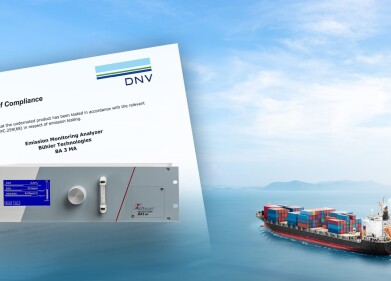Measurement and testing
What is in Petrol?
Apr 24 2021
Used to power anything from personal vehicles to commercial trucks, petrol is a cornerstone of global transport. In the UK road transport accounts for more than 50% of all oil consumption, with the average car guzzling one gallon for every 50 miles travelled. Filling up the tank is easy, though what many drivers don’t realise is the science behind producing petrol. Read on to find out more about what’s in petrol and why it matters.
The fundamentals of petrol
Petrol is made up of multiple chemicals containing hydrogen and carbon, commonly known as hydrocarbons. The average petrol blend contains around 150 different hydrocarbons, including substances such as butane, isopentane and pentane. Most petrol blends also contain benzene, toluene, ethylbenzene and xylenes, a group also known as BTEX compounds.
Unfinished petrol
Most petroleum refineries produce what is known as unfinished petrol. Also known as gasoline blend stocks, these raw blends are mixed with other liquids to produce finished motor petrol compatible with spark ignition engines. These grades are generally produced offsite at blending terminals. It’s not unusual for terminals to add additives or detergents to their blends before shipping them to retail outlets.
Bespoke blends
Every petrol blend has its own unique cocktail of molecules. These define both its physical and chemical characteristics, including properties like colour, aroma and viscosity.
Ethanol content
This summer the UK will reclass “premium” petrol as E10. This blend contains up to 10% renewable ethanol, a strategy designed to reduce CO2 emissions, improve air quality and address global climate change. Compatible with around 95% of petrol-powered cars, E10 has the potential to slash CO2 emissions by up to 750,000 tonnes a year – a huge figure that could drastically reduce the country’s environmental footprint. The United States has adopted similar policies, with most finished motor gasoline now sold with an ethanol content of 10% to meet regulations set out by the Renewable Fuel Standard.
Quality and performance
While performance can vary between grades, all fuel sold in the United Kingdom must meet British Standards. There are rumours that petrol sold by retailers such as Aldi and Tesco is subpar, however most experts assert this theory is ungrounded.
Petrol isn’t the only product subject to strict quality control measures. Lubricating oils used to support and enhance engine performance are also put under the microscope to maintain quality. X-ray fluorescence (XRF) analysis, a technique used to determine the additive elements present in performance-enhancing oils, is discussed further in ‘ASTM D7751: Determination of Additive Elements in Lubricating Oils by EDXRF Analysis.’
Digital Edition
PIN 26.1 Feb/Mar 2025
March 2025
Analytical Instrumentation - Elemental Analysis for Quality and Process Control at Refineries, for Lubricants and Wear Metals in Engine Oils - Synthetic Lubricants: New Developments - Scaling...
View all digital editions
Events
Apr 08 2025 Birmingham, UK
Apr 08 2025 Kielce, Poland
Apr 08 2025 Ravenna, Italy
Apr 08 2025 Southampton, UK
Apr 08 2025 London, UK



















